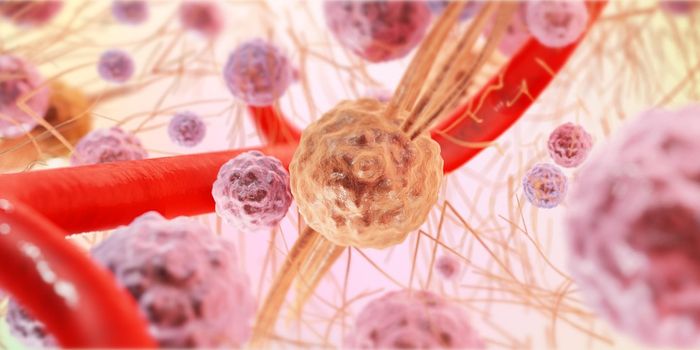Scientists Find an Epigenetic Switch for Cancer's Immortality
If you could microscopically dissect a tumor, you’d find a diverse collection of cells. While all the cells have gone rogue in one way or another, some are highly active, constantly dividing, and some appear to be more dormant. What keeps the active cells in their “youthful” state, and how can we exhaust these cells to stop tumors from growing?
Scientists at the Francis Crick Institute now believe the answer to a cancer cell’s immortality involves a linker histone protein known as H1.0.
“Every cancer is different, but even within the same tumor cells are highly diverse, and only some of them are truly immortal and drive tumor growth,” said Paola Scaffidi, the senior author of the study. As such, Scaffidi and her team asked what mechanism allowed the cancer cells to keep growing. If we knew this answer, she reasoned, we could exploit it in the form of new anticancer treatments.
The team analyzed tumor samples from mice, honing in on any pattern that differed between cells that were seemingly immortal to their more quiescent counterpart. They found that the histone protein H1.0 was unusually low in cells that were trapped in the “youthful” state.
Histone proteins act like a spool around which the DNA helix is wound. The degree to which DNA is wrapped on the histones determines the ease of gene transcription, and thus, gene expression. That is, loosely wrapped DNA is associated with increased gene expression, and vice versa.
In normal cells, Scaffidi and her team found that H1.0 expression was high, which meant DNA was coiled much tighter. By contrast, cancer cells that lack H1.0 seemed to have DNA uncoiled at certain regions, which then allowed genes involved in proliferation to be systematically activated. H1.0 seemed to act as a genetic switch for cancer cells’ immortality.
If it can be turned on erroneously in cancer, can we turn it off to treat cancer? As it turns out, cancer cells have low H1.0 because of a molecular tag on the gene that encodes this protein. We’re not certain of how exactly this tag stops the H1.0 protein being made,” says Scaffidi. But, what the team does know is that targeting the tag to turn on H1.0 levels can reverse the cells’ propensity for eternal youth.
“If we can find a way to reactivate H1.0 in cancer patients, then we might be able to stop tumour growth,” Scaffidi said. “We’re looking for molecules which can boost H1.0 that are already used in patients, so we know they’re safe.
"This research opens up the possibility of one day turning harmful tumors into benign ones by reverting cancer cells back to a finite lifespan, which would eventually cause the tumor to stop growing. Importantly, we've shown that patients whose tumors had low levels of H1.0 tend to do worse and that this was apparent across a range of cancers,” Scaffidi said. "We now know where to start looking for drugs that work by revoking cancer cells' immortality, rather than just killing them off."
Additional sources: Cancer Research UK, MNT, Medical Research interview with Paola Scaffidi









